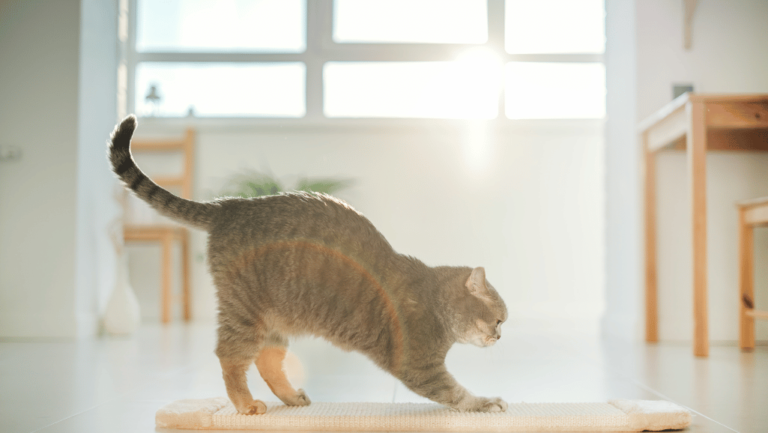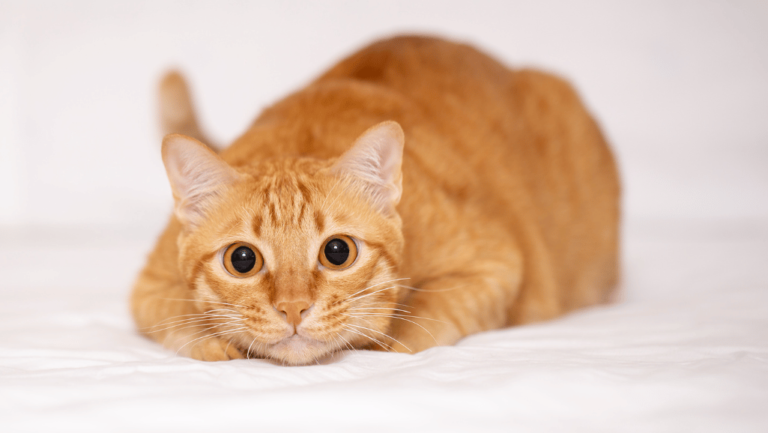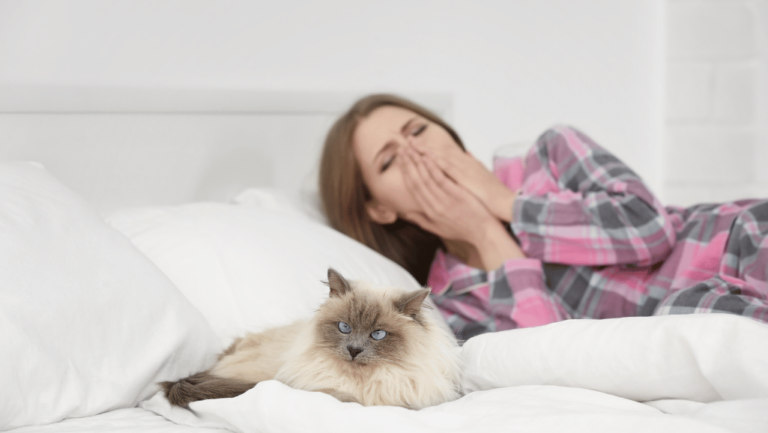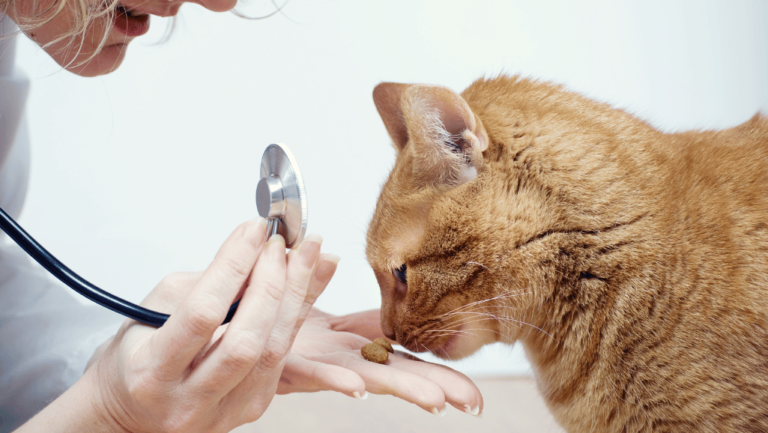Feline immunodeficiency virus (FIV in cats) is a serious infectious disease that affects cats, causing acquired immune deficiency syndrome (AIDS) in feline companions. While FIV cannot transmit to humans, it can have similar effects on cats as HIV does on humans. It is estimated that around 2.5% of cats in North America are affected by FIV, highlighting the importance of understanding this condition and providing proper care for our feline friends.
Just like humans with HIV, cats with FIV can experience a range of symptoms. These may include enlarged lymph nodes, poor coat condition, fever, loss of appetite, mouth inflammation, chronic infections, diarrhea, eye conditions, behavior changes, and weight loss. If you notice any of these signs, it is crucial to have your cat tested for FIV by a veterinarian.
Receiving an FIV diagnosis for your cat can be stressful, but with proper care and management, FIV-positive cats can still lead long and healthy lives. Let’s explore some essential care strategies to ensure the well-being of FIV-positive cats.
Key Takeaways:
- FIV is an infectious disease in cats, causing AIDS-like symptoms.
- Common symptoms of FIV include weight loss, fever, and behavioral changes.
- Early diagnosis and proper care can help FIV-positive cats live long and healthy lives.
Managing FIV in Cats
If your cat is diagnosed as FIV-positive, it’s crucial to follow specific care guidelines to manage their condition effectively. By implementing these guidelines, you can help ensure your FIV-positive cat’s well-being and quality of life.
Regular Veterinary Examinations
To monitor your FIV-positive cat’s health, regular physical examinations by a veterinarian are essential. These examinations should be conducted every six months, with specific attention to signs of weight loss. Regular check-ups allow your veterinarian to assess your cat’s condition and provide necessary care and treatment.
Diagnostic Tests
Annual blood tests, urinalysis, and fecal examinations are recommended for FIV-positive cats. These diagnostic tests help identify any underlying health issues and play a crucial role in managing your cat’s condition effectively.
Spaying/Neutering and Indoor Confinement
Spaying or neutering your FIV-positive cat is recommended. This helps prevent the spread of FIV and reduces the risk of your cat encountering disease-causing organisms. Additionally, confining your cat indoors can help minimize exposure to potential infections, ensuring their safety and well-being.
Parasite Control
Controlling internal and external parasites is important for FIV-positive cats. Administer preventative medications as directed by your veterinarian to protect your cat from parasites that could potentially weaken their immune system further.
Nutrition
A nutritionally complete and balanced diet is crucial for your FIV-positive cat’s overall health. Consult with your veterinarian to determine the most suitable diet for your cat’s specific needs.
Monitoring and Reporting
Monitoring your cat’s health and behavior is vital in managing FIV. Keep a close eye on any changes and report them promptly to your veterinarian. Regular communication and collaboration with your veterinarian will ensure your cat receives the best possible care.
Vaccination Recommendations
Vaccination recommendations for FIV-positive cats should be based on individual risk assessments. Consult with your veterinarian to determine which vaccinations are necessary and appropriate for your cat’s condition.
To summarize, managing FIV-positive cats requires regular veterinary examinations, diagnostic tests, spaying/neutering, indoor confinement, parasite control, a balanced diet, and monitoring their health closely. By adhering to these care guidelines, you can provide the best possible care for your FIV-positive cat and improve their quality of life.
Treatment for Cats with FIV
Feline immunodeficiency virus (FIV) is a complex disease that currently has no cure. While research has been conducted on antiviral drugs for FIV treatment, their effectiveness in cats is limited and can have serious side effects.
Antiviral drugs are only used in exceptional cases and under the supervision of a veterinarian.
The primary approach to managing FIV-positive cats revolves around providing proper care and management to maintain their overall health. This includes:
- Regular veterinary check-ups to monitor their condition
- A balanced and nutritionally complete diet to support their immune system
- Controlling external and internal parasites through preventive measures
If your FIV-positive cat shows any signs of illness, it is crucial to seek prompt and accurate diagnosis from a veterinarian. Early detection allows for effective treatment strategies, which can greatly improve the cat’s quality of life.
Many FIV-infected cats respond well to appropriate medications and treatment strategies.
To summarize, while there is no cure for FIV, the focus should be on comprehensive care and management to ensure the well-being of FIV-positive cats.
| Treatment Approaches | Benefits |
|---|---|
| Regular veterinary check-ups | Monitor the cat’s health and detect any changes early on |
| Balanced diet | Support the immune system and overall health |
| Parasite control | Prevent secondary infections and complications |
| Proper diagnosis and treatment | Manage symptoms and improve the cat’s quality of life |
Contagion and Life Expectancy for Cats with FIV
FIV, or Feline Immunodeficiency Virus, is primarily transmitted from cat to cat through bite wounds. Casual contact poses little risk of transmission. Common modes of contagion include fighting between infected and uninfected cats, especially if the bites break the skin. However, transmission from a mother cat to her kittens or through sexual contact is uncommon.
If you have a multi-cat household, it is recommended to test all cats for FIV and confine infected cats indoors to limit the spread of the virus. This helps protect both infected and uninfected cats. Implementing these precautions can significantly reduce the risk of transmission within your feline community.
The life expectancy of FIV-positive cats varies, but with proper care and management, they can live normal lives for many years. Several studies have shown that their survival time can be similar to that of non-infected cats. Many FIV-positive cats succumb to unrelated causes at an older age, indicating that the virus itself does not significantly impact their overall life expectancy.
Conclusion
FIV in cats is a serious condition that requires comprehensive care and management. Recognizing the symptoms and getting your cat tested is essential for early diagnosis and proper treatment. While there is no cure for FIV, providing regular veterinary care, a balanced diet, and parasite control can help FIV-positive cats live long, healthy lives. Taking precautions to prevent transmission in multi-cat households is crucial, and understanding the life expectancy of FIV-positive cats provides important perspective. With the right care and management, FIV-positive cats can enjoy a good quality of life.
Frequently Asked Questions
Here we answer some of the most common questions about these popular cats breeds, their characteristics, and what potential owners can expect.
- FIV is primarily transmitted from cat to cat through bite wounds, with casual contact posing little risk. Transmission from a mother cat to her kittens or through sexual contact is uncommon.
- Currently, there is no cure for FIV. The focus is on providing proper care and management to maintain their overall health.
- FIV-positive cats should have regular physical examinations by a veterinarian every six months, annual blood tests, urinalysis, and fecal examinations. Spaying or neutering, confining them indoors, controlling parasites, and providing a balanced diet are recommended.
- If your cat shows any symptoms of FIV, it is essential to have them tested for FIV by a veterinarian.
- Common symptoms of FIV in cats include enlarged lymph nodes, poor coat condition, fever, loss of appetite, inflammation of the mouth, chronic infections, diarrhea, eye conditions, behavior changes, and weight loss.
- According to a 2006 study, 2.5% of cats in North America tested positive for FIV.
















